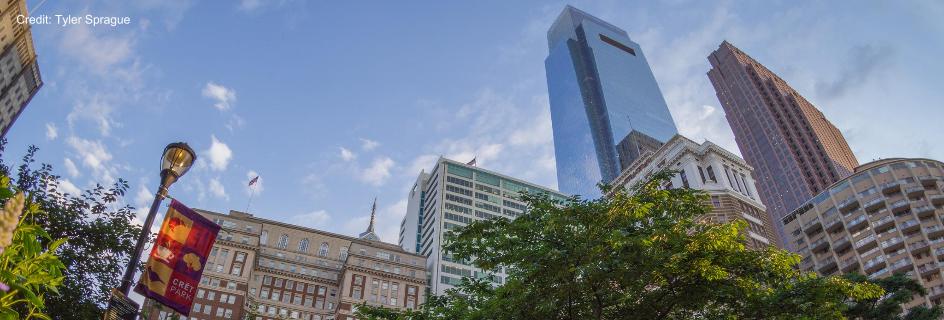- About GPA
- Global Events
- GLOBAL NEWS FROM PHL
- Global Directory
- World Heritage City
- Sustainable Development Goals (SDGs)
- Global Philadelphia Role on Sustainable Development Goals
- Completed Sustainable Development Goals
- SDG#1: No Poverty
- SDG #2: Zero Hunger
- SDG#3: Good Health & Well-Being
- SDG#4: Quality Education
- SDG#5: Gender Equality
- SDG#6: Clean Water & Sanitation
- SDG#7: Affordable and Clean Energy
- SDG #8: Decent Work and Economic Growth
- SDG #9: Industry, Innovation, and Infrastructure
- SDG#10: Reduced Inequalities
- SDG#11: Sustainable Cities and Communities
- SDG#16: Peace, Justice and Strong Institutions
- SDG#17: Partnerships for the Goals
- Press
Home ›
Academy of Natural Sciences Connects Girls From Mongolia and Philadelphia Through Climate Change
Posted on August 22, 2014

Sharnita Midgett, for GPA -- The Academy of Natural Sciences of Drexel University is partnering with the National Museum of Mongolia in the nation’s capital of Ulaanbaatar to explore the issue of climate change.
The partnership, part of the Museums Connect initiative, will have five public high school girls from Philadelphia who are enrolled in the Academy’s Women in Natural Sciences program travel to the museum in Mongolia in the summer of 2015 while five Mongolian girls from a similar program in their country called ROOTS, come to Philadelphia this November.
According to its vice president for education, Dr. Jacquie Genovesi, the Academy of Natural Sciences has a longstanding partnership with Mongolia. The Academy’s scientists have been going to Mongolia for about 30 years to study climate change. Dr. Clyde Goulden is one such scientist who has been working since 1994 in Mongolia, studying climate change and its effect on Mongolia’s herders. He and other Academy researchers have helped train a new generation of Mongolian scientists during this 20 year partnership.
“When we read about the Museums Connect program, we thought what a great opportunity to partner with someone we’ve partnered with in the past on an exciting new project,” said Genovesi.
This program was based on a Women in Natural Sciences program which is in its thirty third year. It is a STEM enrichment and positive youth development program for Philadelphia school district girls.
The girls chosen will participate in the program for one year. It starts with an online curriculum that expands on a different topic each month. The topics will be cultural, teaching the Academy girls about Mongolia and the girls in Mongolia about Philadelphia, and focused on climate change.
Participants will have private Facebook and Instagram pages to connect with each other during the program. Eventually, the Mongolian girls who arrive at the Academy will develop activities to education museum visitors.
Originally, this program could have taken on a different focus. Because the Academy has an astounding collection of dinosaur fossils and research and Mongolia is starting a brand new dinosaur museum, it was thought that the program could revolve around prehistoric reptiles. Eventually, however, the Academy decided on climate change to allow the young participants to focus on the future.
According to the press release issued by the Academy, “climate change is one of the most critical issues facing the world, experts say, yet the people who will be most affected by its impacts, today’s teenagers, are the least engaged.”
Before the program starts, the Academy is developing a new curriculum connecting climate change with cultural ideas. It is now in the process of making applications and interview preparations, working on the linguistics of traveling and figuring out preparations for the language barrier by engaging translators.
According to Dr. Genovesi, the benefit of this program is the experience in itself and the chance to open the girls’ eyes to the global impact that climate change is having.
“Our hope is that the students will come out of the Museums Connect program with a better appreciation of the effects of climate change in their own towns and in the world,” Dr. Genovesi said. “The students will also get the opportunity to really connect with girls whose daily life and culture may be very different from theirs on a personal level. We hope this experience will open their eyes to the world out there, helping them to see that even though people may have very different cultures and lives, that we are more similar than we realize. When it comes down to it, a teenage girl is a teenage girl. She might live in Philadelphia or Ulaanbaatar, but chances are if she is in this program she loves science and is excited to learn new and wonderful ideas about the world we live in.”
Participation in Museums Connect is made possible by the U.S. Department of State's Bureau of Educational and Cultural Affairs and is administered by the American Alliance of Museums.
Photo courtesy of the Academy of Natural Sciences.







